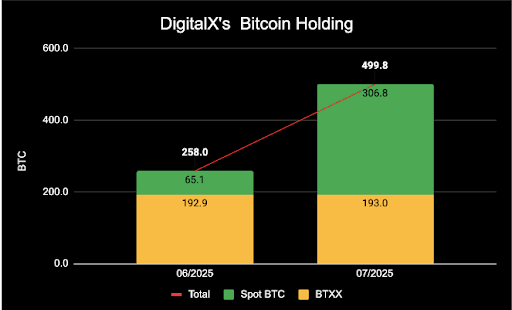House recess over Epstein standoff stalls crypto policy push until September
The House of Representatives adjourned a week ahead of schedule on July 24, initiating its August recess early and effectively halting all floor activity until after Labor Day.
Speaker Mike Johnson announced the break during a floor session, ending votes and procedural work until at least the week of September 8.
This recess comes amid an intensifying debate over a proposed amendment to release files related to Jeffrey Epstein.
Epstein amendment to GENIUS Act
Last week, eleventh-hour maneuvering over an Epstein-related amendment first threatened to stall House proceedings but was ultimately contained. Rep. Ro Khanna attempted to attach a measure mandating the Justice Department to release Epstein files within 30 days to the stablecoin GENIUS Act.
The House Rules Committee rejected the amendment in a narrow 6–5 vote, after which Democrats threatened further procedural action.
The continued dispute prompted Speaker Johnson to announce that no further votes would occur before September, concluding the chamber’s session a week earlier than scheduled.
While this decision pauses ongoing legislative activity, it does not derail crypto-related measures already approved on the floor.
These include the stablecoin-focused GENIUS Act, which has already cleared the Senate and received President Donald Trump’s signature; the CLARITY Act, which aims to delineate regulatory jurisdiction between the SEC and CFTC; and the Anti-CBDC Act, which seeks to prohibit the Federal Reserve from issuing a central bank digital currency.
The latter two bills are now before the Senate, with no further House action required following the votes earlier this month.
Crypto bill delayed by early recess
The early adjournment does, however, delay work on additional crypto policy initiatives, most notably tax legislation.
During a July 16 House Ways and Means Oversight Subcommittee hearing, members discussed the need for updates to digital asset taxation frameworks. Proposals included establishing a de minimis exemption for small transactions, clarifying staking reward treatment, and revising wash-sale rules. Lawmakers expressed intentions to introduce a draft bill “in the near future,” though any such legislative movement will now be deferred until after the recess.
One crypto-adjacent measure directly affected by the shutdown is the Veterans Affairs Distributed Ledger Innovation Act of 2025 (H.R. 3455). The bill, introduced by Rep. Nancy Mace, would direct the Department of Veterans Affairs to evaluate how blockchain technology could improve benefits claims processing.
The proposal passed a subcommittee hearing on June 11 but still awaits full committee markup and a House floor vote. As a result of the recess, no further action on the bill is possible until at least the week of September 8, rendering it procedurally frozen until the chamber reconvenes.
The legislation mandates a comprehensive study into how distributed ledgers might enhance transparency and efficiency within the VA’s claims systems. It outlines the need for immutable records to trace each adjudication stage and prevent fraud, while also codifying the definition of a distributed ledger to ensure the department does not substitute conventional database solutions.
If enacted, the Secretary of Veterans Affairs would be required to report findings within a year, including potential pilot programs and any legislative changes needed for deployment. However, the bill remains stalled until the House resumes business.
While lobbying and committee staff work may continue behind the scenes throughout the recess, the House’s early exit pauses any new floor action until September.
The crypto bills that cleared the House floor before the adjournment are unaffected and now rest with the Senate and the White House for further consideration.
Meanwhile, measures like the VA blockchain study will remain dormant until lawmakers return to Washington.
The post House recess over Epstein standoff stalls crypto policy push until September appeared first on CryptoSlate.


